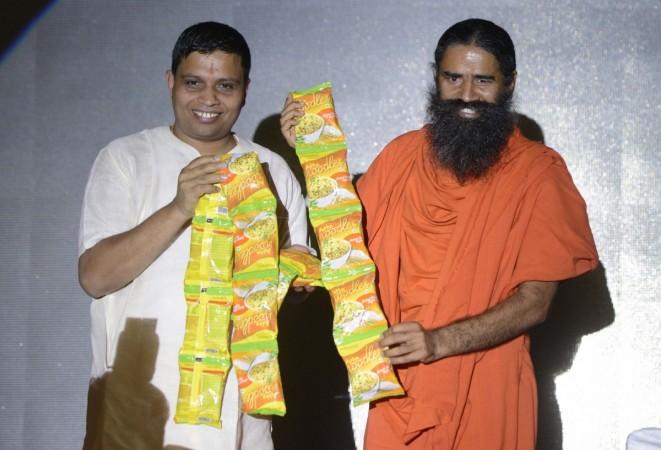
Patanjali Ayurved, the FMCG company promoted by yoga guru Baba Ramdev, slipped to the sixth position in the list of top 10 brands for the week ended May 20 (week 20) as measured by television audience measurement agency BARC India.
The company, which sells a range of consumer products such as toothpaste, noodles, wheat, naturals and ayurvedic items, was the top-rated brand for four weeks in a row in February this year, but has seen its popularity decline gradually since then in the list published by the Broadcast Audience Research Council (BARC) India every week.
For week 20, it was ranked below multinational brands, with the top slot occupied by Dettol, Honda, Lifebuoy, Harpic and Lakme.
Patanjali Ayurved's 2015-16 sales stood at Rs. 5,000 crore, up from Rs. 2006 crore in the previous financial year. The company had said it was hoping to double revenues to Rs. 10,000 crore in the current fiscal.
If the company manages to achieve the revenue target, it would put Baba Ramdev's Patanjali Ayurved ahead of rivals such as Nestle, Colgate and P&G in India.
Also read: Baba Ramdev's Patanjali Group compels FMCG firms Hindustan Unilever and Dabur to expand portfolio
The company, which had posed a formidable challenge to many established FMCG companies such as Dabur India and Hindustan Unilever, according to analysts, was recently pulled up by advertisement industry watchdog Advertising Standards of Council (ASCI) for placing "misleading" advertisements in different product categories during March 2016.
"The advertisement's claim, 'mineral oil is carcinogenic in nature and may cause cancer' was false and misleading by ambiguity and by gross exaggeration," the ASCI's Consumer Complaints Council (CCC) said, referring to Patanjali Kesh Kanti Natural Hair Cleanser and Oil.
Claims in advertisements for other products such as Patanjali Herbal Washing Powder, Cake and Dishwash Bar, Patanjali Kachi Ghani Mustard Oil were also declared as "misleading, false and unsubstantiated" by the ASCI, according to a press release issued on Thursday.
In all, the watchdog had upheld complaints against 90 out of 156 advertisements that were referred to it, 32 of which pertained to education, followed by 30 in healthcare and personal care, 10 in foods and beverages.

















